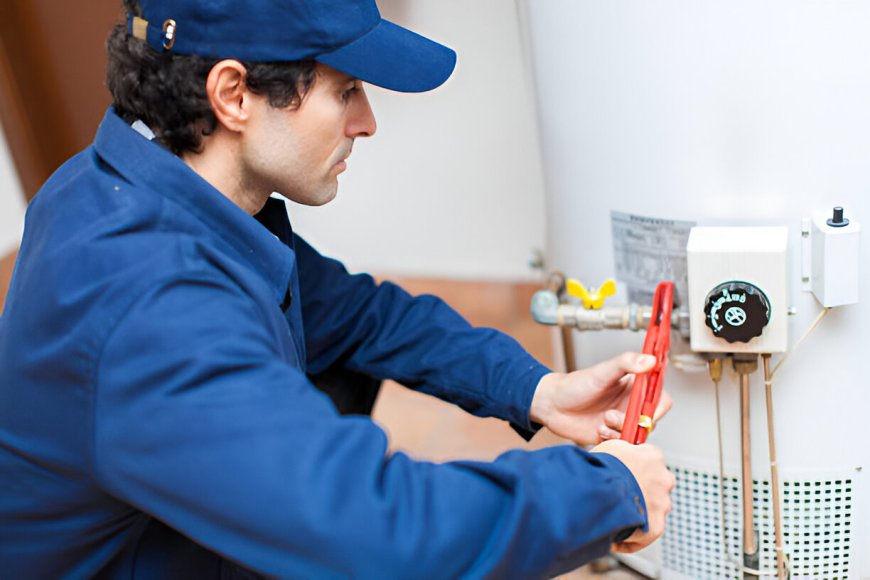What to Expect During Hot Water Repairs in Melbourne: A Step-by-Step Guide
Learn what happens during hot water repairs in Melbourne. This step-by-step guide covers the entire process—from diagnosis to completion—so you know what to expect.

Having hot water at home is something we all need, especially during Melbourne's chilly winters. Whether it's for a morning shower, washing dishes, or doing the laundry, hot water makes life easier. But when your hot water system stops working, it can be frustrating and uncomfortable. The good news is, help is just a phone call away.
If you've never gone through a hot water repair before, don't worry. This simple guide will explain what happens during hot water repairs step by step. That way, you know what to expect and feel more confident when a plumber visits your home.
Step 1: Spotting the Signs of a Problem
Most people realise something's wrong when the hot water stops flowing. But there are other warning signs to look out for, like:
-
Water that isn't hot enough
-
Strange noises coming from the tank
-
Rust-coloured or dirty water
-
A leak around the base of the hot water system
-
Hot water runs out very quickly.
These signs may mean your system needs repair. Acting quickly can help stop the problem from getting worse and more expensive.
Step 2: Making the Call
Once you notice something is off, it's best to call a licensed plumber right away. Many plumbers in Melbourne offer 24/7 emergency services, so even if it happens at night or on the weekend, help is available.
When you call, be ready to answer a few basic questions:
-
How long has the problem been going on?
-
Is it a gas, electric, or solar system?
-
Can you see any leaks or damage?
-
Do you have any hot water at all?
This information helps the plumber understand the situation and bring the right tools and parts with them.
Step 3: The Plumber Arrives
Once the plumber arrives, they'll greet you politely and take a close look at your hot water system. Most plumbers in Melbourne are trained to work on all types of systems, including gas, electric, solar, or heat pumps.
The inspection may include:
-
Checking pipes and fittings
-
Looking at the water tank
-
Testing water pressure and temperature
-
Inspecting the power or gas supply
-
Examining for rust or corrosion
The plumber will work carefully and safely to find out exactly what's going wrong.
Step 4: Getting a Clear Explanation
After the inspection, the plumber will explain the problem in simple words. They'll tell you:
-
What's causing the issue
-
Whether it needs a repair or full replacement
-
What the repair will involve
-
The total cost and how long it will take
A good plumber will also answer any questions you have. You won't be pushed into making a quick decision. They will give you time to think and only start the job once you agree.
Step 5: Doing the Repair
Once you give the go-ahead, the plumber will get to work. Some common hot water system repairs include:
-
Replacing broken valves or thermostats
-
Fixing pipe leaks or joint seals
-
Replacing heating elements or sensors
-
Cleaning out sediment from the tank
-
Re-igniting the pilot light on gas units
Depending on the problem, the job could take anywhere from 30 minutes to a couple of hours. If parts need to be ordered, the plumber may return the next day to complete the work.
Step 6: Testing the System
After fixing the issue, the plumber will always test the system. They'll make sure:
-
Hot water is flowing again
-
The water pressure is normal
-
There are no leaks or unusual noises
-
The system is safe to use
This step is very important. A proper test ensures the job was done right, and your system won't stop working again anytime soon.
Step 7: Cleaning Up and Sharing Advice
No one wants a messy worksite. A professional plumber will clean up their tools and any mess they make during the repair. They'll leave the space as tidy as they found it.
Before leaving, many plumbers also give helpful advice, like:
-
How to maintain your hot water system
-
When to get it serviced again
-
What to watch out for in the future
These small tips can help your system last longer and work better.
Step 8: Final Bill and Follow-Up
Finally, the plumber will provide a clear invoice. It should match the quote you agreed onno hidden fees or surprise charges.
Many plumbing companies in Melbourne also offer a warranty on their repairs. This means if something goes wrong soon after the job, they'll come back and fix it without charging again. This gives you peace of mind, knowing your money was well spent. If you're happy with the service, don't forget to leave a review. It helps others find a good plumber, too.
Conclusion
Hot water repairs might sound stressful, but they don't have to be. When you understand the process and know what to expect, it becomes much easier to handle. From spotting the problem to enjoying warm showers again, each step is taken care of by trained professionals.
If you're looking for reliable, fast, and friendly hot water repairs Melbourne, you can count on Essendon Plumbing Services. With years of experience and a strong local reputation, their team is always ready to help, day or night. Don't wait for the problem to get worse. Call the experts, and get your hot water flowing again today!







































